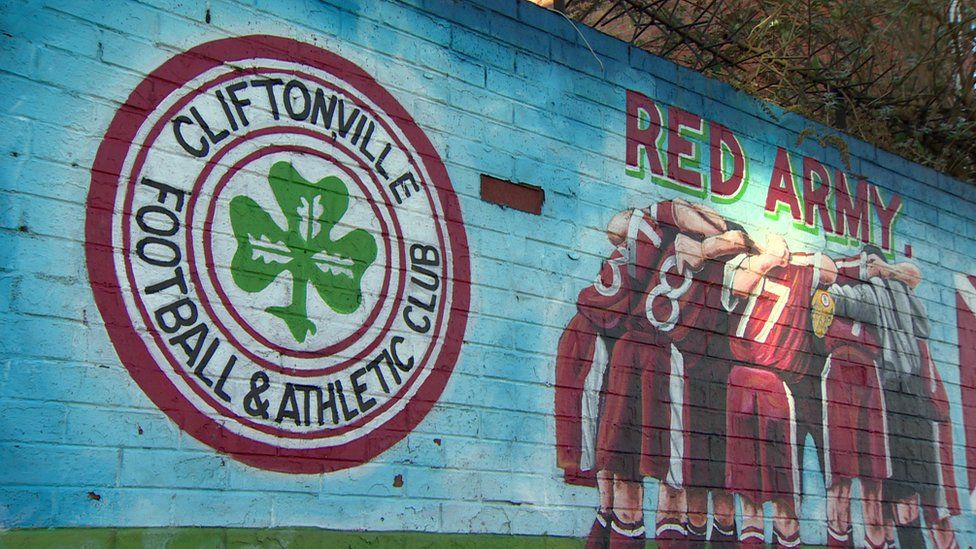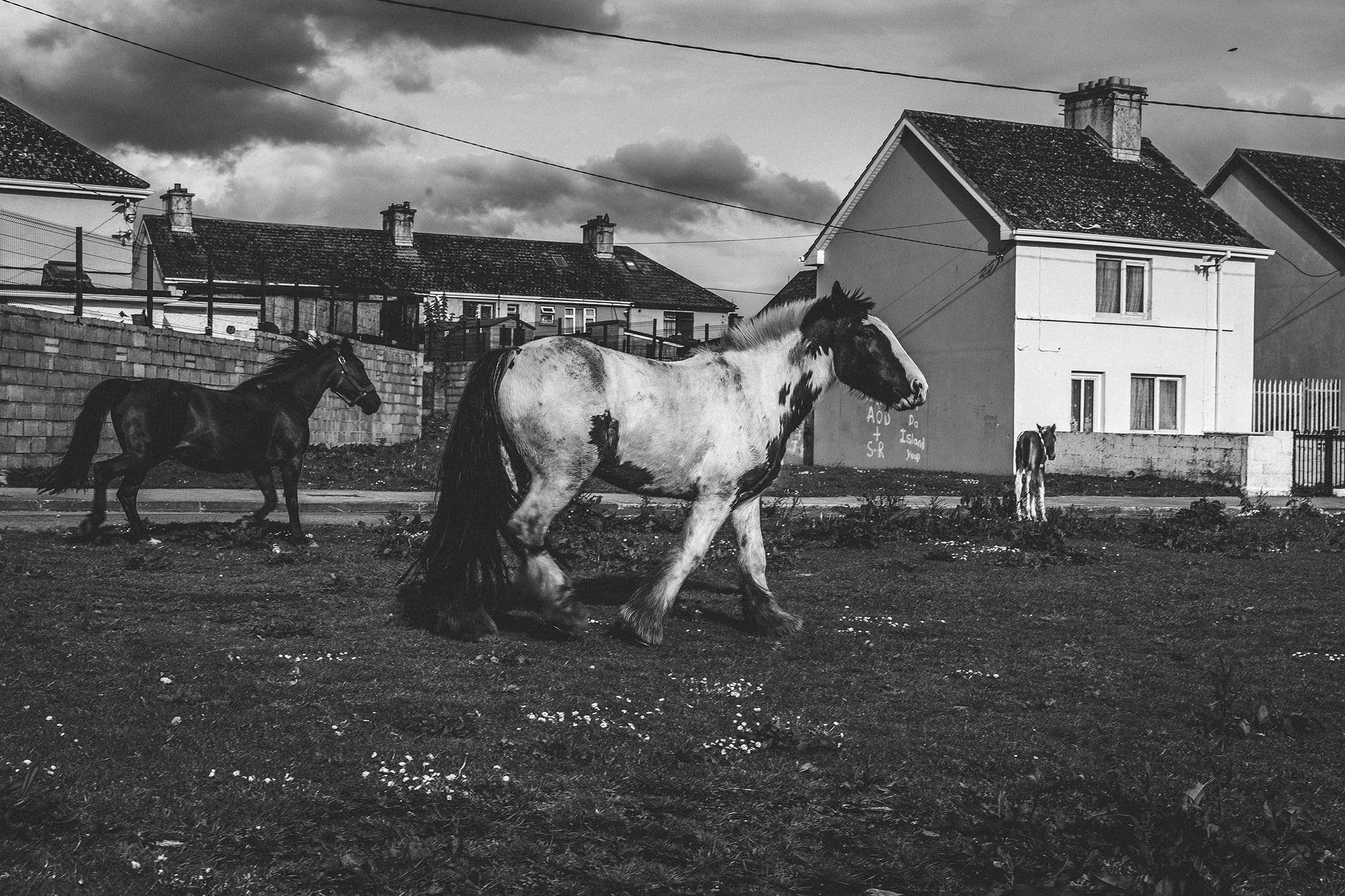
Since I
decided to allow Sky Sports back into
my life last Autumn, it has proved to be something of a comfort, especially on
blustery Monday nights. On such occasions, tired from weekly 6-a-side and
fraught from the onslaught of the working week, I find myself sprawling on the chaise longue, deep beneath a high tog duvet and further
insulated by dozing cats, counting down the seconds until bedtime by watching a
game of football I’m generally able to feign an interest in. So it was on
January 27th when, erroneously as it turned out, I expected to see
Bournemouth versus Arsenal. I knew it wasn’t on BBC as they’d shown the Man City v Fulham and Shrewsbury v
Liverpool ties on the Sunday, so Sky
seemed to be the natural host for such a fixture. They weren’t; it was on BT which I have not got. Instead I was
enticed by the tempting, nostalgia-inducing, delights of Coleraine against
Cliftonville in the Danske Bank
Premiership.
Amidst all
the terrifying imponderables of the post Brexit dystopia we’ll soon find
ourselves in, two positives are inevitable; an independent Scotland and a
reunited Ireland. Obviously one of the most important tasks in the imminent 32
county Republic, is a whole island football league, where the summer game in
the 26 counties and the winter one in the North, are successfully merged. From
the evidence of Coleraine 1 Cliftonville 0 and Cliftonville 0 Linfield 1 a few
weeks earlier, there is absolutely no question that football in the north of
Ireland is vastly inferior to the game in the 26 counties.
As mentioned
above, there was a sense of nostalgia occasioned by the live broadcast from the
Showgrounds. You see, about 35 years ago, while studying for a degree in
Literature at Ulster University, though generally opting to watch the
endearingly terrible intermediate side Portstewart FC, on account of the fact
they played at the top of my street and turn left, I would occasionally take myself off to see
the Bannsiders when they hosted some of their less problematic rivals from the
Irish League; clearly Glentoran and Linfield were the ones to avoid, but the likes
of Larne, Newry and Crusaders, with a tiny travelling support, could be safely
viewed from the Railway End, which now seems to be a compact all-seated home
end, exactly replicated at the opposite Ballycastle Road End for away fans. The
first time I saw Coleraine in action was a UEFA Cup tie at home to Sparta
Rotterdam on 28 September 1983, where they gave a right good account of
themselves in front of nigh-on 5,000 fans on a Wednesday afternoon (no
floodlights you see), holding the visitors to a 1-1 draw, courtesy of a late
Felix Healy strike. Shame they’d lost the first leg 4-0.

The other
game I remember clearly was an end of season home defeat in April 1985 to
Crusaders, which ended even a mathematical hope of the title, after Raymond
McCoy, a brilliantly talented but temperamentally difficult local lad, had put
Coleraine ahead with a sumptuous chip. Sadly, the end of that season saw star
player Felix Healy head for the revived Derry City, McCoy fall out with boss
Jim Platt and bearded, straggly-haired keeper Vincent Magee retire, which
significantly reduced the club’s appeal in my eyes. The plight of the game
versus Cliftonville, a club I’ve always had sympathies for, on account of them
being the only Catholic club in a Protestant League for Protestant people, did
not engender any real affection. Cliftonville, having already disgraced
themselves on telly with the aforementioned terrible home defeat to Linfield,
may have my sympathies but they don’t deserve my support. However, one caveat I
would advance in defence of IFA clubs is that trying to play football in a
climate that is characterised by gale force winds and incessant, driving rain
for 300 days of the year, is an almost futile exercise. They ought to lake a
leaf out of the League of Ireland’s book, and play football in summer. Perhaps
shifting the marching season to January may end the sectarian farce forever, as
fans of all teams seem keen on singing incessantly about arcane details of 17th
Century Irish History on rainswept terraces on winter Monday nights.
Incidentally, I’d still like to see Dundela play at some point.

You’ll have
seen I’ve just praised the FAI for doggedly sticking to the principle of summer
football, which effectively means late February to early November. Then again,
having watched a game in a hailstorm at Athlone’s evocatively named and almost
deserted Lissywoolen on May 30th, 2011, the apportioning of seasons
to months and vice versa is an inexact art in Erin’s Green Isle. What is
certain is that, bar the times when games are played, the Football Association
of Ireland and their adjunct the League of Ireland, are not fit for shovelling
shit, never mind running the game at all levels. To be fair, there is currently
an almost disconcerting level of stability in the top division, notwithstanding
the endless dreary saga of the redevelopment of Dalymount Park and the need for
Bohs to groundshare with Shels at some point in the future while modernisation
is carried out. The story of Finn Harps’ potential new ground is now firmly
rooted in Irish folk mythology and as complex as a Flann O’Brien plotline.
However, with the season set to begin on St Valentine’s Day, at least the
casual observer can be relatively confident of the list of participating clubs
remaining constant throughout the season, though one should never rule out the
possibility of an unexpected implosion at the most inopportune of moments. This
is not the case with the First Division, which ought to be in some kind of
protective custody for its own good.
While the
revelations concerning the business practises of the shady, meretricious Gombeen
John Delaney during his financially ruinous tenure at the top of the FAI should
provide more than enough evidence to throw him in the slammer for the thick end
of a decade, he’ll no doubt emerge unscathed from this vat of horse shite
smelling of roses and bank notes, safe in the knowledge that the FAI’s attempts
to construct a valid and feasible list of competing clubs for 2020 are about as
credible as putting Harold Shipman in charge of Help the Aged.
At the end
of the 2019 season, UCD came last in the top division and were relegated. Finn
Harps were second bottom, but won their play-off against Drogheda United. This
meant the First Division, subject to the granting of licenses, a process as
transparently (in)credible as the Premier League’s fit and proper person test,
would consist of the following clubs for 2020 -:
Athlone Town
– permanently skint and lucky to still be going
Cabinteely –
had contemplated cutting their losses and dropping back down to the Leinster
Senior League
Bray
Wanderers – showing no signs of reviving after relegation in 2018
Cobh
Ramblers – based in Cork, which explains everything
Drogheda
United – skint, playing in a ramshackle ground but trying their best
Galway
United – moribund; a shell of the side of a decade ago
Limerick – possibly
the sixth club from Stab City to try and make a go of it; suffering a slow
financial death of a thousand cuts
Longford
Town – lads out in the country, trying their best
UCD – the D4
Big Bang Theory lot are only in this
competition for a laugh
Wexford –
Mick and his pal Clare are concentrating on interfering with aircraft more than
football these days
Therefore,
without unduly castigating the volunteers, players and supporters trying to
keep clubs afloat in the most straitened of circumstances, the whole division
is a complete basket case that could have been rescued by a single year of
Delaney’s salary. Of course, it wasn’t
and things proceeded to go downhill rapidly when Limerick were refused a
licence, on the grounds of being skint and up shit creek without a paddle. The
city known for the twin passions of its inhabitants for knives and rugby were
replaced by the eternal fudge of placeholders Shamrock Rovers B stepping up for
a season. When Mervue and Salthill decided it was farcical to continue in the
First Division back in 2014, while Galway couldn’t reanimate the corpse of
football by the Corrib in time for kick off, the Tallaght Corinthians Shadow
Squad stepped up to the plate for a year, allowing the Galwegians time to get
their act together. And so it was imagined allowing Shams stiffs a season of
meaningless kickarounds in 2020 would keep the seat warm until the Treaty
Blades could retake their position in lower mid table.

No so fast,
announced a suddenly militant crowd of first division clubs, who stood
foursquare behind Limerick and their simple Stanley Knife of truth and in
direct opposition to the LOI’s wholly unsatisfactory fudge. Just as it is was
shaping up for a Mexican Moyross stand-off, the League relents and prints
another set of fixtures, including ELEVEN clubs, who will play 2 sets of
fixtures (they used to play 3 and the identically numbered Premier division
played 4, for some reason), preceded by a reanimated First Division Shield
round-robin fiasco.
Just when I
thought I had only Cork and Cobh left to do before I’d completed the League of
Ireland set, and had identified possible weekends for some fun by De Banks,
this nonsense comes around. Rest assured though, despite the potential for
chaos, things can only get better as Mr Charity himself, Niall Quinn has been
parachuted in as some kind of temporary executive / problem drinker. Honestly,
you couldn’t make this stuff up. That said, it hasn’t put me off a weekend in
the Rebel city, taking in Cork City and Cobh Ramblers games, with July 17th
and 18th looking favourite, for the visits of Sligo and Longford. Then, I'll only have Limerick left to visit...

No comments:
Post a Comment